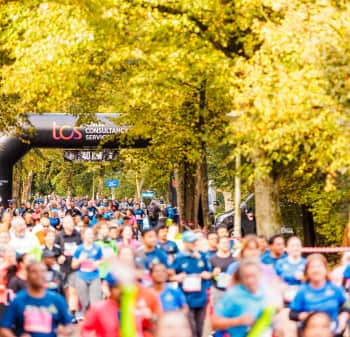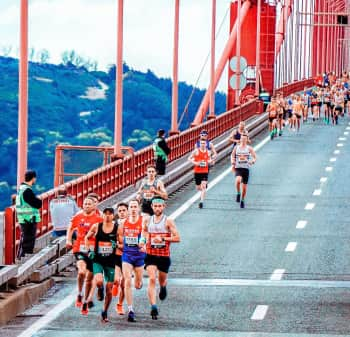
World Athletics, what is it?
The global institution that governs athletics
Behind major performances, legendary marathons, and record-breaking moments, a key institution plays a vital backstage role: World Athletics. For running enthusiasts, it is a name that surfaces regularly, sometimes in small print at the bottom of a results table, sometimes at the center of discussions on recognizing a new record. But what does this logo, seen everywhere, signify? World Athletics, is the body that manages athletics globally 🌎. Founded in 1912 as the IAAF (International Association of Athletics Federations), it became World Athletics in 2019. Its main mission is to govern, evolve, and promote the sport of athletics on all continents. However, contrary to its name might suggest, this federation is not just concerned with the track 🎽. Far from it.
From track to road, World Athletics regulates all international competitions
World Athletics covers all disciplines of athletics 🎽 :
- track running,
- field events (jumps, throws),
- race walking,
- road racing,
- cross-country running,
- mountain running and trail running.
It is also the body that oversees official marathon records, half-marathon records, 10 km road race records, etc., with performances that excite runners. And it is above all the reference authority when it comes to ensuring the regularity, safety, and transparency of international competitions. Whether you are an elite athlete or an amateur runner, it is World Athletics that keeps records, sets rules, and validates times ⏱️ at major competitions. It also supports the fight against doping and oversees all governance surrounding professional competitions. Its mission: to ensure that athletics, in all its forms, is a sport cleaner, more structured, more accessible, and even more popular 🎉.
World Athletics: A global organization but also locally grounded
With its 214 member national federations and headquarters based in Monaco 🇲🇨, World Athletics is a global organization. At its head is Sebastian Coe, former British athlete 🇬🇧, double Olympic middle-distance champion and former head of the London 2012 Games Organizing Committee 🥇. Surrounded by about a hundred collaborators, he daily steers the federation with a clear goal: to grow athletics worldwide. This work also includes constant coordination with local federations, as evidenced by the creation of a World Athletics Annual Running Calendar in 2023 📅. This calendar groups labeled and officially recognized races by the organization to allow athletes to achieve eligible performances and thus qualify for international events, like the Olympic Games, through a ranking system.
A mission that goes beyond just timing
World Athletics' ambition is not just to time races ⏱️. It is also to protect the sport, support its athletes, and facilitate its development in less covered regions. The organization acts on several fronts:
- It organizes high-level events (World Championships, Wanda Diamond League, etc.). It handles regulation, official rankings, antidoping procedures with the World Anti-Doping Agency and the Athletics Integrity Unit.
- It develops programs to train coaches, officials, and local clubs.
- And it tries to connect more with the public, notably through social networks 📱, public events, etc.
There is also a sustainable development dimension in the institution's strategy. It implemented a specific action program in 2020 aimed at putting sport at the service of climate action and society. In connection with the United Nations Environment Programme, World Athletics advocates for more sustainable practices, notably through campaigns on air pollution or plastic waste. A way to remind that sport, especially when practiced outdoors, has a role to play in major causes. Their approach also has a significant social scope with projects surrounding justice, gender equality, and the fight against poverty and hunger.
World Athletics Labels: A guarantee of seriousness for road races
In the running world, these famous mentions often appear: Platinum Label, Gold Label, Elite Label... They are not just pretty badges. These official labels assigned by World Athletics to race organizers ensure that the race meets several criteria (precisely measured course, safety, participant level, anti-doping efforts, winner rewards, etc.). Here are the current 4 levels:
- World Athletics Platinum Label (also called Platinum): the very best. Hosting top global athletes, quality runner experience, TV coverage, exemplary safety, fast times. Often marathons of the type World Marathon Majors or equivalents.
- World Athletics Gold Label: very well-organized races with high standards in courses, victory prizes, performances, and race conditions.
- World Athletics Elite Label: serious and recognized races but slightly more local, or emerging internationally.
- World Athletics Label: an initial level of recognition, certifying a race meeting the minimum quality and integrity criteria required by World Athletics.
♻️ A sustainability strategy
In terms of sustainability, World Athletics is committed to running events 🏃 that are more responsible and mindful of their environmental impact. The organization provides organizers with a guide to best practices through its Sustainable Events Management System (SEMS) 🛠️ and a new dedicated program: Athletics for a Better World (ABW). This offers 55 concrete actions 📌 covering all aspects of event organization: waste management, transportation, food, inclusion, safety, etc. The goal 🎯: to help races, big or small, towards more responsible organization. A point system allows events to be recognized 🏅 according to five levels:
Athletics for a Better World Platinum Event 💎: 108 points (90%)
Athletics for a Better World Gold Event 🥇: 96 points (80%)
Athletics for a Better World Silver Event 🥈: 84 points (70%)
Athletics for a Better World Bronze Event 🥉: 72 points (60%)
Athletics for a Better World Certified Event ✅: the organizer has demonstrated a clear commitment to the main sustainability issues 🌿: 40 points
Although not mandatory, these scores reward environmental initiatives 🌎 undertaken in organizing road races worldwide. With this incentivizing and gradual approach, World Athletics allows organizers to embrace the environmental challenges at their own pace by relying on concrete tools 🧰.
World Athletics, in summary
World Athletics is like the discreet yet indispensable conductor of the world of athletics 🎽, the cornerstone of running. A global institution ensuring that the sport remains clean, fair, and well-organized, while also helping it grow wherever possible. For running enthusiasts, it is primarily a landmark. When a race is labeled by World Athletics, it is often synonymous with seriousness, rigor, and thus performance potential. In a world constantly evolving, the organization has an eye on the future. It is already planning new competitions to better support athletes and continually offer more entertainment for fans. This suggests that the future of running promises to be even more spectacular 🌟.
This could also be of interest to you
A next-gen platform helping sports enthusiasts of all levels discover territories and heritage through races tailored to them.
Made in France, between Lyon and Nantes




